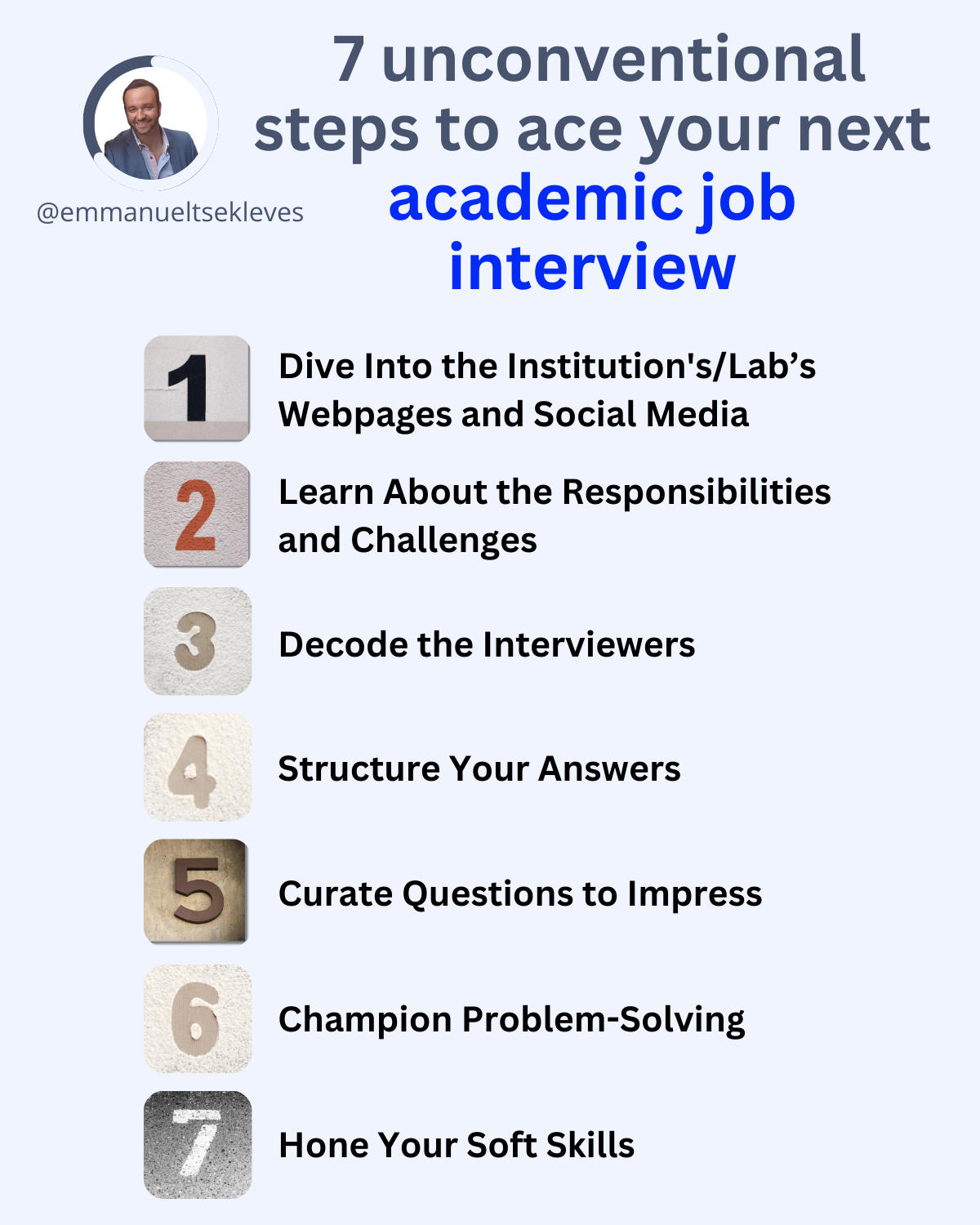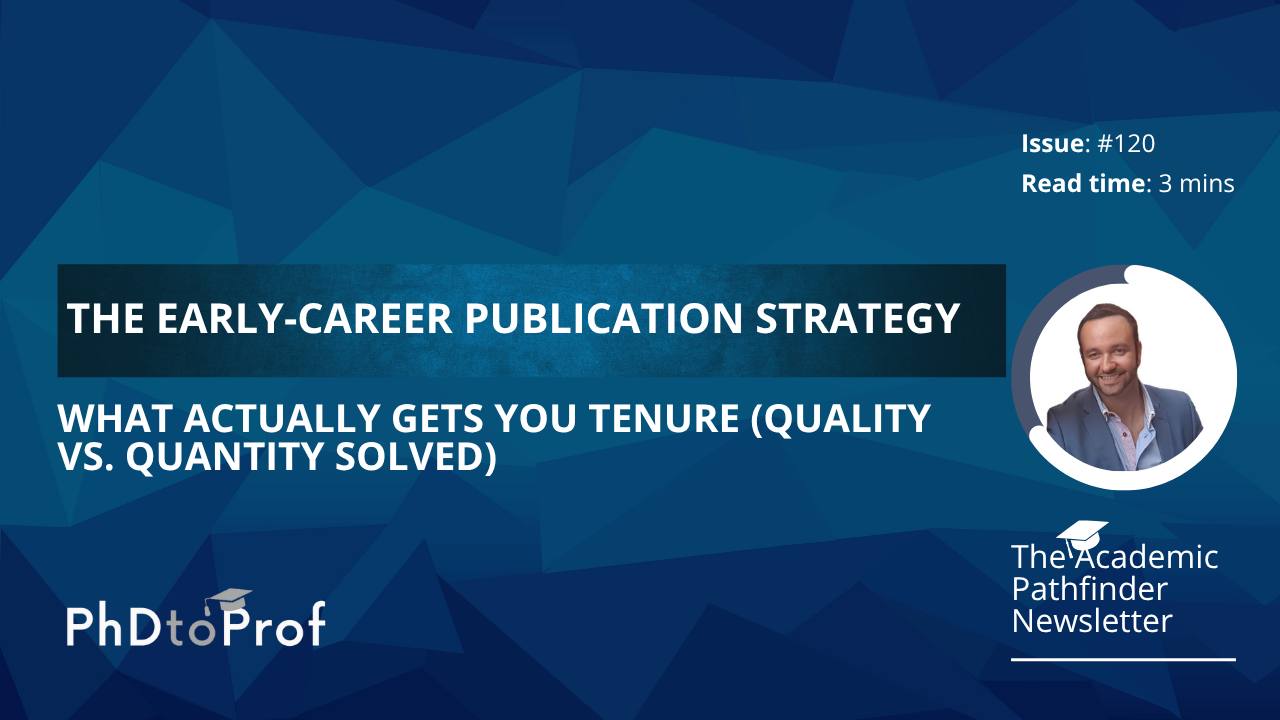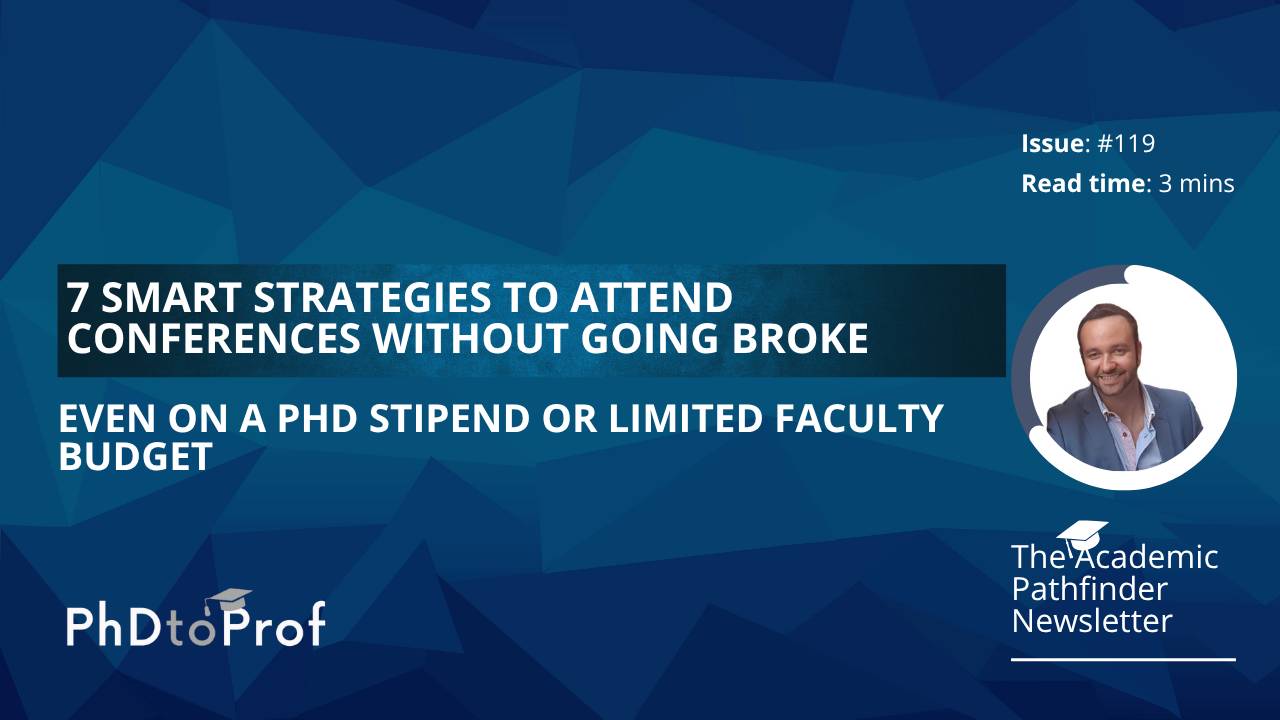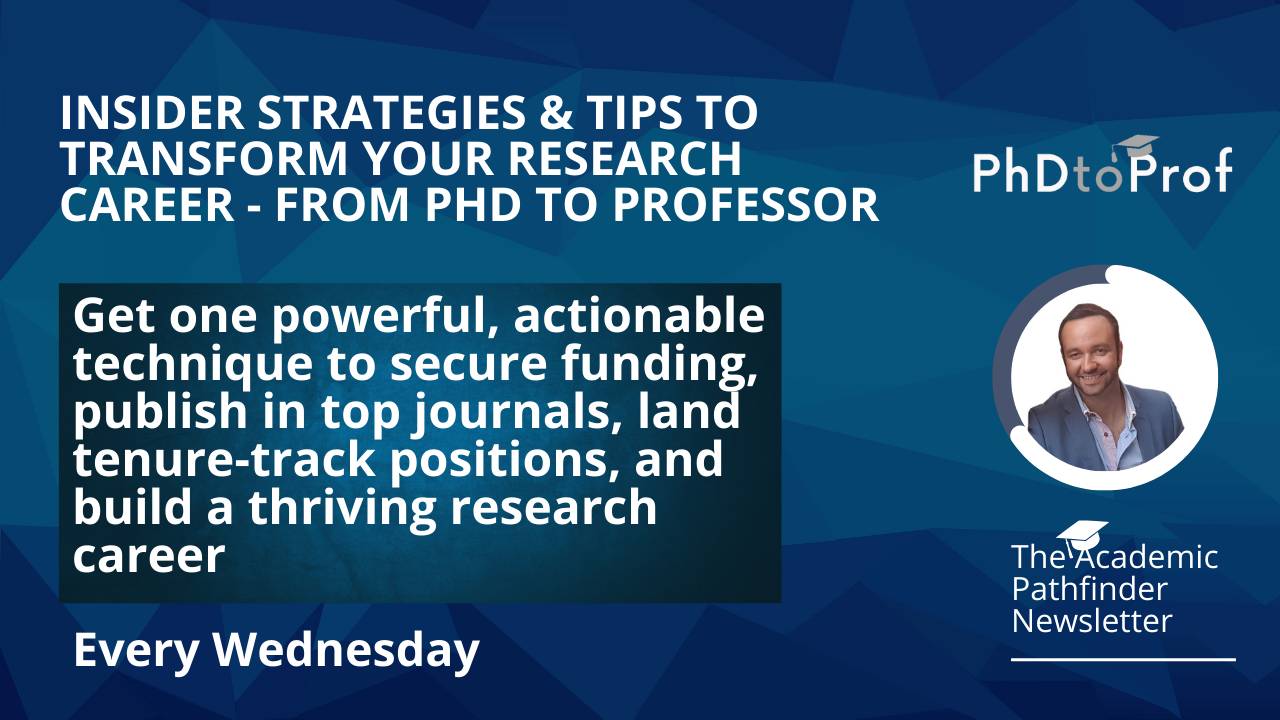#114 - 7 Critical Questions to Ask Academic Job Holders & Hiring Committees (That Reveal Whether the Job Is Worth Taking)

Today, I'm sharing the seven essential questions that helped me identify red flags early, focus my applications on promising opportunities, and ultimately choose a position where I could thrive rather than just survive.
17 September 2025
Read time: 3 minutes
Supporting our sponsors directly helps me continue delivering valuable content for FREE to you each week. Your clicks make a difference! Thank you. Emmanuel
Are you struggling securing an academic job?
As someone who sits on hiring committees - the biggest job application failure?
Researchers who can't clearly explain their research identityI'm fixing this in my next FREE webinar, next Wednesday.
Get hired by getting clear. Limited spots: Click here to Register for FREE
Most faculty job seekers waste time applying to positions that would never support their success.
Instead of blindly sending applications based on job descriptions, smart candidates research opportunities thoroughly before applying and ask strategic questions during interviews.
The key is engaging with current faculty listed on job advertisements and asking hiring committees the right questions to evaluate whether positions truly match your goals.
Today, I'm sharing the seven essential questions that helped me identify red flags early, focus my applications on promising opportunities, and ultimately choose a position where I could thrive rather than just survive.

During my first year on the job market, I applied to 50+ positions based solely on job descriptions, wasting months crafting applications for departments that were poor fits.
My breakthrough came when I started reaching out to faculty members mentioned in job advertisements before applying, using strategic questions to evaluate opportunities.
This approach helped me identify which positions were worth pursuing and which would likely lead to disappointment.
When I did receive interviews, I continued asking targeted questions that revealed crucial information about department culture and support systems.
These seven strategic questions have since helped dozens of my mentees make informed decisions about where to apply, how to interview effectively, and ultimately which faculty positions to accept.
Question #1: What Does Success Look Like for Junior Faculty in the First Three Years?
Ask this question when reaching out to current faculty before applying, then follow up with department chairs during interviews.
Why ask this: Departments often have unwritten expectations that differ from their official tenure requirements.
Some expect major grants in year two while others focus on teaching excellence.
Understanding these expectations helps you evaluate whether they're realistic given your background and resources.
Who to ask: Before applying, contact junior faculty in the department via email.
During interviews, ask the department chair and search committee members directly.
What to listen for: Specific, achievable milestones rather than vague statements about excellence.
Be concerned if different people give conflicting answers or if expectations seem impossible to meet.
Question #2: How Does the Department Actually Support Faculty Research and Professional Development?
Direct this question to current faculty before applying and to both administrators and faculty during campus visits.
Why ask this: Many departments promise research support but provide minimal follow-through.
You need concrete details about conference funding, research leave, startup packages, and mentoring support you can actually expect.
Who to ask: Before applying, ask current assistant professors about their actual experiences.
During interviews, ask administrators for official policies and faculty for real experiences.
What to listen for: Specific dollar amounts, clear application processes, and examples of recent support provided to faculty.
Pay attention to any hesitation or vagueness in responses.
Question #3: Can You Share Examples of Recent Tenure Cases and Their Outcomes?
Ask current faculty about this informally before applying, then pose it directly to department chairs during interviews.
Why ask this: This question reveals the department's actual standards, not just their written policies.
You'll learn what really matters for tenure success and whether the department supports or undermines junior faculty during the process.
Who to ask: Before applying, reach out to recently tenured faculty.
During interviews, ask department chairs and senior faculty about overall patterns and processes.
What to listen for: High success rates, clear explanations of decisions, and evidence that the department advocates for their junior faculty rather than just evaluating them.
Question #4: What Are the Department's Biggest Current Challenges and How Are You Addressing Them?
Explore this topic with current faculty before applying, then ask administrators directly during campus visits.
Why ask this: Every department faces challenges, but some are more serious than others.
Budget cuts, leadership conflicts, declining enrollment, or toxic dynamics can create environments where success becomes impossible.
Who to ask: Before applying, ask faculty at different ranks for their perspectives.
During interviews, ask administrators, senior faculty, and junior faculty separately.
What to listen for: Honest acknowledgment of challenges with realistic plans for addressing them.
Be wary if different groups give completely different answers or if everyone claims no problems exist.
Question #5: How Do Faculty Here Handle Work-Life Balance and What Support Exists for Personal Well-Being?
Ask this question to current faculty both before applying and during your campus visit.
Why ask this: Academic careers can be demanding, but some departments create unnecessarily stressful environments that lead to burnout.
Understanding their culture helps you assess whether you can maintain your health and relationships.
Who to ask: Focus on junior faculty who can give you the most honest answers about actual workload and stress levels.
What to listen for: Specific examples of how faculty manage workload, use vacation time, and handle family responsibilities.
Pay attention whether faculty seem genuinely happy or stressed when discussing work-life balance.
Question #6: What Opportunities Exist for Collaboration Within and Beyond the Department?
Explore this with current faculty before applying, then ask about it during interviews with multiple people.
Why ask this: Successful academic careers increasingly depend on collaboration, both within and outside your department.
Isolated faculty often struggle with grants, publications, and career advancement.
Who to ask: Before applying, ask about internal collaborations with department colleagues and external partnerships.
During interviews, ask faculty across different ranks.
What to listen for: Specific examples of successful collaborations, institutional support for interdisciplinary work, and openness to unconventional partnerships.
Question #7: For Faculty Who Excel Here, What Career Advancement Opportunities Become Available?
Ask this question to senior faculty both during your preliminary research and during interviews.
Why ask this: Some positions are stepping stones to better opportunities while others become career dead ends.
Understanding advancement possibilities helps you make strategic long-term decisions.
Who to ask: Senior faculty and department chairs who have observed career progressions over time.
What to listen for: Concrete examples of faculty who have advanced within the institution, used the position to move to better opportunities, or taken on leadership roles.

Key Takeaways:
- Research opportunities before applying by reaching out to current faculty to ask strategic questions about department culture and support
- Ask multiple people the same questions to check for consistency and get complete perspectives during interviews
- Focus on specific examples and concrete details rather than accepting vague promises about support and opportunities
→ Your Action Plan for This Week
- Identify 2-3 current faculty members at institutions where you're considering applying and reach out with 1-2 strategic questions
- Prepare these seven questions in advance of any faculty interviews, customizing them for each institution
- Create a system for comparing answers across different institutions and faculty members
Are you struggling to secure an academic job?
Transform Your Academic Career in Just 6 Weeks and Land Your Dream Academic Position (Even If You've Been Rejected Before)
Discover my Groundbreaking 6P Framework That Helps Talented Researchers Stand Out in a Crowded Academic Job Market and Transform Rejection Into Job Offers
Well, that’s it for today.
See you next week.
Whenever you're ready, there are 3 ways I can help you:
1. Get free actionable tips on how to complet your PhD and secure a tenure-track job in academia by following me on X, LinkedIn me Instagram and BlueSky
2. Take my proven Academic Job Accelerator Program that has helped hundreds of researchers secure academic positions, and start with my free training videos to learn the exact strategies hiring committees respond to.
3. Join my Premium 1:1 PhD Mentorship Program. I provide exclusive, results-driven support for professionals who need fast-track guidance on proposals and thesis completion. DM or email me to learn more about this premium consultancy for serious professionals ready to succeed quickly.




Responses